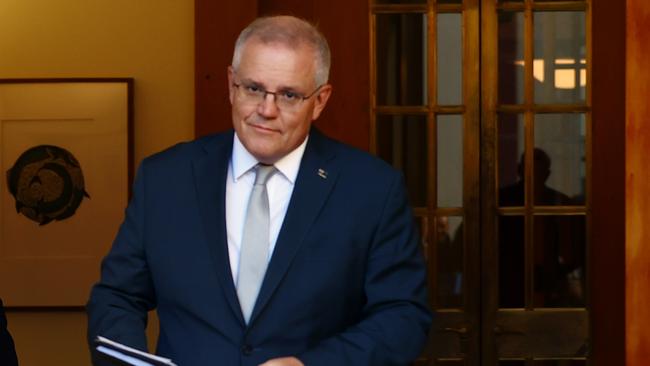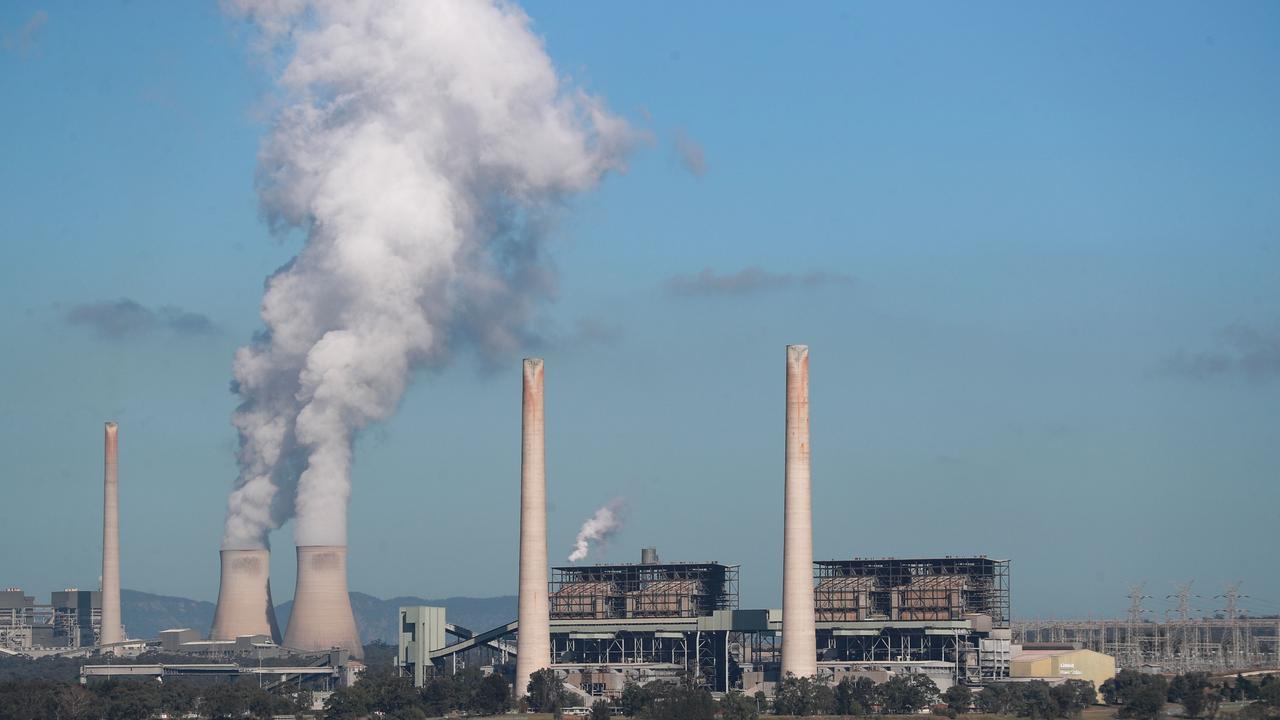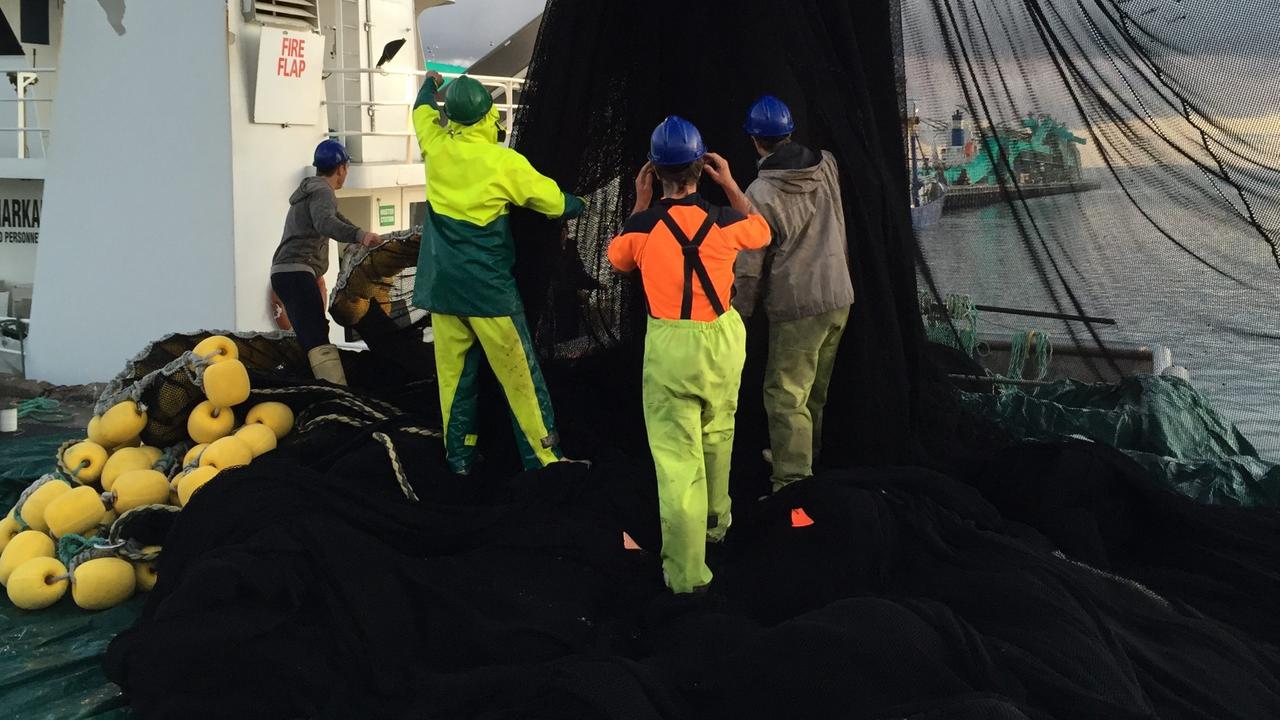National cabinet: High-risk travellers curtailed
Australians will find it harder to travel to and from high-risk countries such as India that are overwhelmed with COVID-19 cases, after national cabinet agreed to reduce flights from those nations.

Australians will find it harder to travel to and from high-risk countries such as India that are overwhelmed with COVID-19 cases, after national cabinet agreed to reduce flights from those nations and allow people to fly there only in “urgent circumstances”.
Scott Morrison also announced that vaccination of Australians aged between 50 and 69 years old with the AstraZeneca jab would be brought forward to May 3 at state-run and respiratory clinics and May 17 at general practices.
The states will join the commonwealth in immunising aged and disability care employees with the Pfizer vaccine in a bid to speed up the rollout for that priority workforce, following estimations just 15 per cent of aged-care workers and 1 per cent of disability workers had been vaccinated.
The Prime Minister said the number of COVID-19 cases in hotel quarantine coming from India had increased from about 10 per cent to 40 per cent of all cases, sparking new rules from national cabinet.
The government will soon announce a list of high-risk countries, similar to a system used in Britain, from which commonwealth-funded charter flights will drop by 30 per cent.
Direct commercial flights from India into Sydney will also be reduced by 30 per cent.
Australians who have been in a high-risk country in the past fortnight and enter Australia through a transit country such as Singapore or Qatar will be made to undergo COVID-19 testing 72 hours before embarking their final international flight. “I wouldn’t be suggesting anyone from a high-risk country be rushing back to Australia,” Mr Morrison said.
“We will also be limiting departure exemptions for Australians travelling to high-risk countries.
“Those who may have been going for … family events such as weddings or, sadly, funerals, these were things that were restricted in Australia for Australians … We’ll be instructing the Border Force to ensure only in very urgent circumstances would an exemption be permitted for someone to travel to a high-risk country.”
West Australian Premier Mark McGowan had pushed for a suspension or heavy restriction on Australians from India following a steady climb in the number of returned travellers arriving in Perth infected with coronavirus.
Just one week into national cabinet being placed under a “warlike footing” to fix the delayed vaccine rollout and Mr Morrison said the group of political leaders would meet just once next week.
National cabinet was meant to be meeting twice weekly but the Prime Minister said there wasn’t a need to meet before next Friday.
In a major admission the government had bungled messaging about the rollout, Finance Minister Simon Birmingham said the government would not be setting targets again and had raised expectations that could not be met.
The government had promised Australians would have received their first dose by October and that four million people would be immunised by March.
The number of doses administered as of Thursday was approaching 1.8 million.
“On the vaccine front … if we could go back in time, would we have set out the timeline that we did based on the contracts we’d signed and the expectations of when vaccines would roll out? Well, clearly, you wouldn’t do that again,” Senator Birmingham told ABC radio.
Health secretary Brendan Murphy sought to assure those aged 50 and older the AstraZeneca benefit risk ratio was “vastly in favour of getting vaccinated”.
NSW has reported a 70 to 80 per cent reduction in health workers receiving the AstraZeneca jab in the wake of medical advice linking it to a very rare blood clot disorder. Pfizer is now the preferred vaccine for under 50s.
Professor Murphy would not say how many Pfizer and AstraZeneca doses would be arriving in Australia in the weeks ahead.
NSW Premier Gladys Berejiklian and Chief Health Officer Kerry Chant visited the state’s mass vaccination site at Sydney Olympic Park on Thursday and said it should be running by the middle of next month, dispensing 30,000 vaccines a week at its peak.



